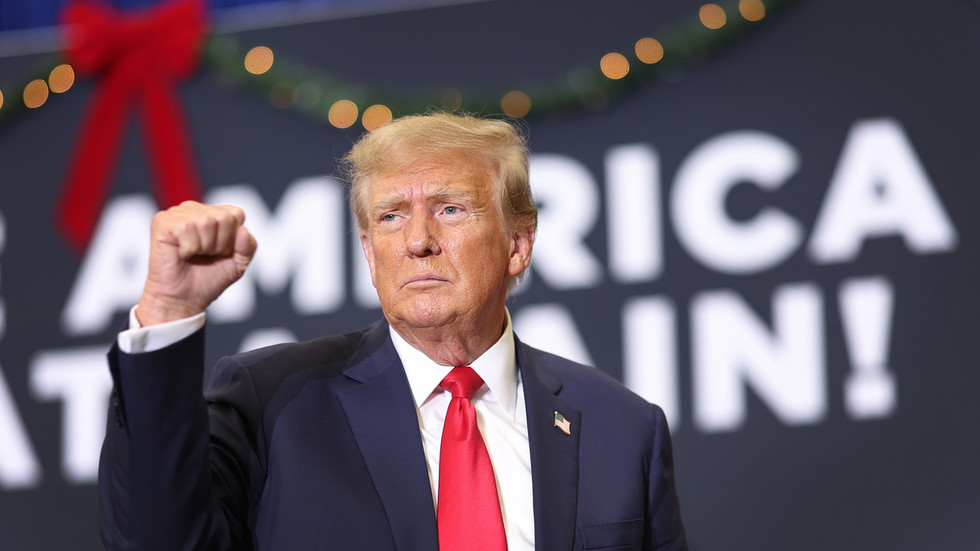
The former US president is facing legal challenges in at least 16 states over his bid to return to the White House

Republican presidential candidate and former U.S. President Donald Trump gestures as he wraps up a campaign event on December 19, 2023 in Waterloo, Iowa © Getty Images / Scott Olson/Getty Images
The decision this week by Colorado’s Supreme Court to disqualify Donald Trump from holding office is the first of several legal challenges that could derail the former US president’s bid to return to the White House, the New York Times has said.
At least 17 states currently have legal challenges to Trump’s eligibility, the New York Times reported Wednesday. The paper, which cited Lawfare – a website that tracks US national security issues – says that four of these lawsuits have been filed in state courts in Michigan, Oregon, New Jersey, and Wisconsin.
A further eleven lawsuits, in states including Arizona, Nevada, New York, Texas, Vermont, and Wyoming, have been filed in federal district courts. Trump’s legal team has said they intend to appeal the Colorado decision to the US Supreme Court.
Colorado’s top court on Tuesday ruled that Trump is ineligible to appear on the state’s primary ballot ahead of next year’s presidential elections. In a 4-3 ruling, the Colorado justices found that Trump violated the 14th Amendment to the US Constitution, which prohibits anyone who has “engaged in insurrection or rebellion” from holding office.

Read more
The former US president is accused of breaching the so-called “insurrectionist ban” over his alleged efforts to overturn the results of his 2020 election defeat to Joe Biden and inciting the riots at the US Capitol on January 6, 2021.
The ruling does not prevent Trump from running in other states across the US.
In a statement on Tuesday, Colorado’s Supreme Court noted that its judgment placed the court in “uncharted territory” over its efforts to disqualify Trump from the state ballot. It also said that its decision could be reversed with “the receipt of any order or mandate from the Supreme Court.”
Should the US Supreme Court opt, as expected, Trump’s appeal to hear it would mean that he would be returned to the state ballot until America’s top court makes a formal decision.
An appeal would also suspend the other active lawsuits across the US, according to retired appeals court Judge J. Michael Luttig. “If the Supreme Court takes the case, it will effectively stay the proceedings in all the other states,” Luttig said, according to the New York Times on Wednesday.
The Supreme Court’s judgment on the issue also faces time constraints. Colorado’s Secretary of State confirmed to MSNBC this week that it must certify the candidates eligible to appear on ballots by a January 5 deadline to physically print the documents ahead of the state’s primary election in March.
In addition to constitutional arguments over Trump’s capacity to potentially return to the White House, the former president also faces 91 felony counts in four ongoing criminal cases in Washington, New York, Florida, and Georgia.




